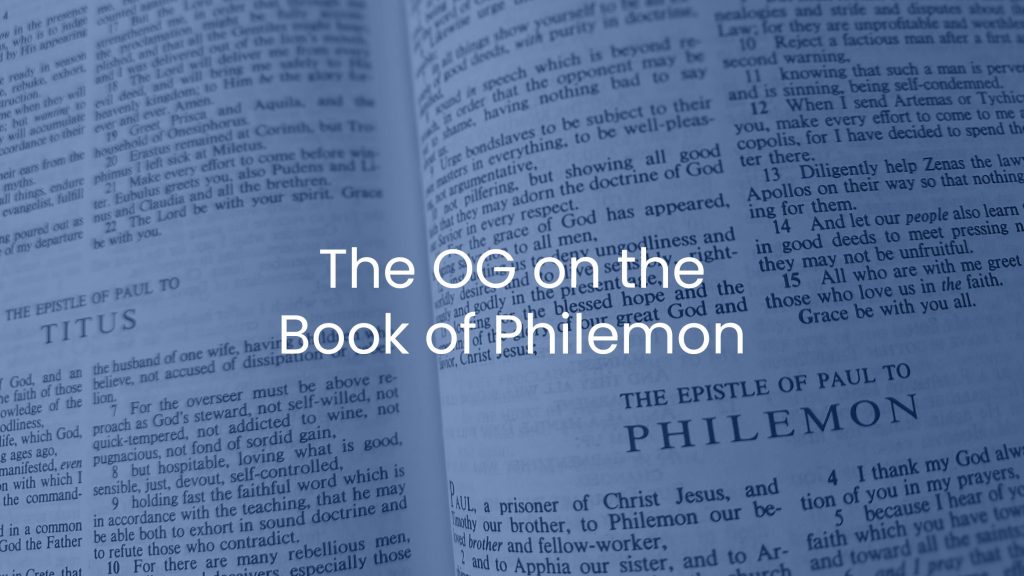|
Getting your Trinity Audio player ready...
|
This letter is from Paul, a prisoner for preaching the Good News about Christ Jesus, and from our brother Timothy. I am writing to Philemon, our beloved co-worker (Philemon 1-2, NLT).
The Book of Philemon is short, tabulating at only 335 words in the Greek. It’s written to a close friend of the Apostle Paul.
Paul’s purpose in writing to his friend Philemon is Onesimus. It seems Onesimus was a slave of Philemon who had left Colossae (where Philemon and Onesimus lived) and made his way to Rome, where Paul was being held prisoner.
As noted in the previous Interruption #1247, there is historical evidence that Paul/Saul was raised in a slave family, and perhaps Onesimus traveled to Paul for sympathy.
Interesting that we find the ultimate purpose of Paul’s correspondence to Philemon about halfway through the letter . . .
I appeal to you to show kindness to my child, Onesimus. I became his father in the faith while here in prison (v. 10).
And what we find in the rest of Philemon is nothing short of fascinating. There are two things Paul accomplishes.
The first is obvious—helping to restore Onesimus; but the second has more world-changing implications. My favorite New Testament seminary professor once said, “This small book of the Bible undermines the entire institution of slavery.”
How does Paul accomplish both admirable goals?
- Paul discusses his involvement in both the conversion of Philemon and Onesimus. In doing so, the Apostle Paul was implementing his
theology that with the gospel, “there is neither slave nor free” (Galatians 3:28).
- Owners were owners, and slaves were slaves—with a great uncrossable chasm. Yet Paul called them brothers in Christ. Paul says in Philemon 15-16, “You might have him back [Onesimus] forever, no longer as a bondservant, as a beloved brother.”
It’s morally unnerving to keep as a slave a brother in Christ.
- The great Apostle Paul treats Onesimus as an equal. Paul said to Philemon, “So if you consider me as a partner, receive him as you would receive me.” In other words, how Philemon would treat a visiting Paul should be the same as with a returning Onesimus.
This is a challenge to all slave owners throughout the ages—how would you respond to a visit from the Apostle Paul?
The letter to Philemon not only derides slavery, but it’s a masterful piece of “motivating for change” literature. After the Apostle Paul tells Philemon to treat Onesimus as if he were Paul personally, Paul writes . . .
Prepare a guest room for me, for I am hoping through your prayers I will be generously given to you (v. 22, NASB1995).
Uh oh, Philemon, the Apostle Paul is coming for a visit!
Paul concludes, “Epaphras, my fellow prisoner in Christ Jesus, sends greetings to you, and so do Mark, Aristarchus, Demas, and Luke, my fellow workers” (vv. 23-24).
These are giants of first-century Christianity faith. Like receiving a letter from Billy Graham saying, “And Mother Teresa, C.S. Lewis, Rick Warren, and Pastor Grant send greetings!!”
Amen. May the grace of the Lord Jesus Christ be with all of us (v. 23).


Pingback: Epistles from Prison – grantedwardsauthor.com